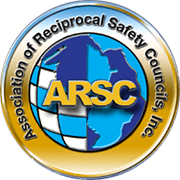By Trish Ennis, CSP, ARM, CRIS
Executive Director, Colorado Safety Association
We live in a world of data and information. Sometimes things change so fast it can be hard to keep up. However, there is one thing that we know does not change with any frequency, and that thing is the frequency by which the Occupational Safety and Health Administration (OSHA) updates workplace safety regulations. The mechanism to change regulations is burdensome, and can take many years. Fortunately, there is another source of information for the Occupational Safety and Health (OSH) professional to access for best practices and guidance. Consensus standards such as those developed by the American National Standards Institute (ANSI), and the International Organization for Standardization (ISO) are good sources of information for professionals who are looking to advance an organization’s safety and risk management programs.
What is a consensus standard? ANSI standards are developed by an American National Standards Committee. These committees are national in scope, and follow specific guidelines developed by ANSI. The committees are formed and hosted by a Secretariat, an organization that manages the activities and procedures to develop the standard, and subsequently print and distribute the standards. The American Society of Safety Professionals is the Secretariat for a number of important safety and health ANSI standards, including: ANSI/ASSE Z590.2 – 2003 (R2012) Criteria for Establishing the Scope and Functions of the Professional Safety Position, ANSI/ASSP Z10-2012 (R2017) Occupational Health and Safety Management Systems, (Provisions in Z10 have a direct relationship to the content of the CSP examinations) and ANSI/ASSP Z490.1-2016 Criteria for Accepted Practices in Safety, Health and Environmental Training, to name just a select few.
Other new standards that OSH professionals may want to be aware of are the new manned aerial lift standards: ANSI/SAIA A92.24-2018 Training Requirements for the Use, Operation, Inspection, Testing and Maintenance of Mobile Elevating Work Platforms (MEWPs), and ANSI/SAIA A92.22-2018 Safe Use of Mobile Elevating Work Platforms (MEWPs). The Mobile Elevating Work Platforms standards were developed under the Secretariat of the Scaffold & Access Industry Association's (SAIA). These new standards introduce performance standards, a departure from the prior version of the standards which was comprised of product-specific standards. In the Training, Familiarization and Authorizing Operators section, an example of the kinds of information presented are the requirements for training, as well as actions that will trigger retraining for personnel using mobile elevated work platforms.
Another new standard that OSH professionals should be taking a look at is the new ISO 45001 Occupational health and safety management systems – Requirements with guidance for use. This management standard will replace the OHSAS 18001 standard for global as well as domestic organizations that wish to implement a safety management system. These ISO standards allow an organization to be audited against the requirements and obtain ISO certification, a process that certifies that a management system, manufacturing process, service, or documentation procedure has all the requirements for standardization and quality assurance.
Consensus standards are a good source of information for OSH professionals who are interested in identifying best practices as they have been identified by a comprehensive group of committee members that understand the industry and topic. These standards frequently provide extensive Annex/Appendix documents that provide additional information and templates. OSHA looks to consensus standards and will sometimes incorporate them by reference into regulatory text. The Board of Certified Safety Professionals (BCSP) considers these standards when developing questions for certification exams, making these another source for individuals to turn to as they prepare for advanced certification.
